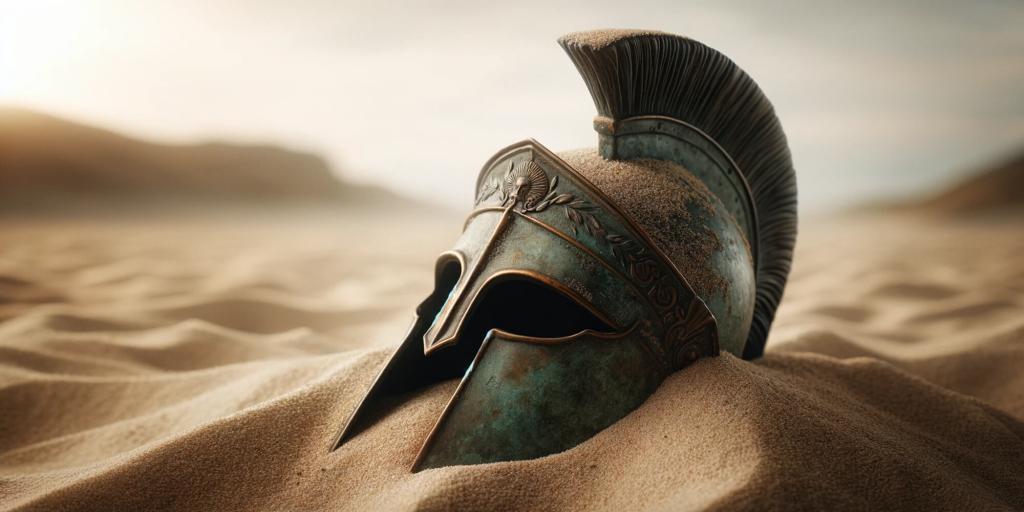
To the Strongest
His ascension and conquests were rapid and furious, but his life would be brief. As was prophesied, he had made Greece the greatest empire on earth. But after subduing many nations, young Alexander the Great now lay dying in Babylon. According to one account, as Alexander approached death, one of his lieutenants asked him to whom should go the empire. He replied, “To the strongest.”
Alexander was born in 356 BC to King Philip II and Queen Olympia, of Macedon. As a young prince, he was tutored by Aristotle, who gifted him a copy of the Iliad, which Alexander cherished for the rest of his life. He spent his teenage years campaigning with his father, whilst also dealing with tumultuous family issues and threats to his future inheritance of the kingdom of Macedon. Undefeated in battle, he achieved legendary status in the ancient world. Roman emperors and Caesars venerated him, his tactics continue to be studied in military academies throughout the world, and his life continues to be popularized in modern media.
More than two centuries before Alexander’s birth, God gave Nebuchadnezzar a dream where that great king saw a great image with a head of gold, a chest and arms of silver, a belly and thighs of bronze, and legs and feet of iron and clay (Daniel 2:31–33). The head of gold represented Nebuchadnezzar himself and the Babylonian empire. The chest and arms of silver represented the next empire—the Medes and the Persians. Then came the belly and thighs of bronze, which represented Alexander and the Greco-Macedonian empire. Finally, were the legs and feet of iron and clay, representing the future Roman empire, continuing until Christ’s return (v. 34).
Later in Daniel, a two-horned ram is described (Daniel 8:3–7). According to Daniel 8:20, this two-horned ram represented the mighty kingdom of the Medes and Persians. Then, a ferocious male goat with one great horn is described attacking and defeating the ram (8:5–7, 21). That male goat represented the future kingdom of Greece, and the large horn between its eyes represented Alexander, who “with furious power” would defeat Persia (vv. 5–6).
Alexander became king of Macedon in 336 BC and immediately waged war to consolidate Greece. As prophesied, he also promptly made war against Persia—the greatest empire at the time. He conquered the mighty King Darius III, first at Troy and then at Issus, where he took Darius’ wife and daughters captive. Alexander seized from Darius the title “king of kings” and continued his wars of expansion.
By 333 BC, he had conquered most of modern-day Turkey, Lebanon, Judea, Iraq, Iran, and Turkmenistan. By 331 BC, he ruled Egypt, where he established the great port city of Alexandria (although many other towns and cities founded throughout his empire would also come to bear his name). He would conquer as far east as India, defeating King Porus and his fearsome war elephants in 326 BC, after which his utterly exhausted army begged him to pause his campaigns. By June 323 BC, Alexander, “king of kings,” would be dead. The “mighty horn” would be broken (Daniel 8:21–22).
According to the Greek historian Diodorus, when asked to whom his empire should be left to rule, Alexander replied, “To the strongest.” Whether this actually happened or was one of the many legends surrounding the famous conqueror, Alexander the Great’s death with no clear successor led to the fulfillment of another prophecy. As God had revealed hundreds of years prior, four kingdoms would arise from Alexander’s empire, “but not with its power” (Daniel 8:22). Alexander had simply set the stage for his empire to be divided among his four greatest generals: Ptolemy, Cassander, Seleucus, and Antigonus.
Alexander died sometime after the evening of June 10. He was 32.
Alexander considered himself “king of kings” and he purportedly willed his empire “to the strongest.” But even the strongest human king will only rule briefly. Alexander did not understand, but the strongest truly will take possession of all the kingdoms of the earth, and He will rule forever (Revelation 11:15, 19:16). The ultimate King of kings is no human king—He is the Christ, the stone cut without hands (Daniel 2:34), Who will establish His everlasting Kingdom, and all will serve and obey Him (Daniel 2:34–35, 7:27).
For further study about these amazing prophecies and the exciting promises of Jesus Christ’s return, please read or request The Beast of Revelation: Myth, Metaphor, or Soon Coming Reality? and Understanding Bible Prophecy.
Stay up to date with our Weekly Digest Email!
Tomorrow's World ComMentary Podcast
Subscribe to Tomorrow's World Commentary podcasts on iTunes and Google Play!



